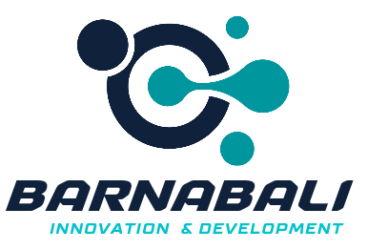Market Research and Lead Generation for Specific Products
Market research is a cornerstone of digital technology and market development, offering businesses the necessary insights to navigate complex market dynamics. By engaging in thorough market research, companies can gain a deep understanding of current market trends, customer preferences, and competitive landscapes. This understanding is crucial for the development and marketing of specific products, ensuring that they meet the needs and expectations of the target audience.
The process of market research involves several steps, starting with the identification of research objectives. Businesses must define what they aim to achieve, whether it’s understanding consumer behavior, evaluating market potential, or analyzing competitors. Data collection follows, using methods such as surveys, interviews, and focus groups, along with leveraging digital tools like web analytics and social media monitoring. The collected data is then analyzed to draw actionable insights, which inform strategic decisions and product development.
Lead generation is an integral component of market research, focusing on identifying and attracting potential customers. Effective lead generation strategies involve the use of various tools and techniques, such as content marketing, email campaigns, and search engine optimization. These strategies are designed to capture the interest of prospective customers and guide them through the sales funnel. Utilizing customer relationship management (CRM) systems can further streamline the process, allowing businesses to track and manage leads efficiently.
Targeted marketing campaigns, driven by data, are particularly beneficial in enhancing sales and fostering business growth. By focusing on specific segments of the market, businesses can tailor their messaging and offerings to resonate with the needs and desires of their audience. This targeted approach not only improves the effectiveness of marketing efforts but also optimizes resource allocation, ensuring that investments yield the highest possible returns.
Real-world examples underscore the value of market research and lead generation. For instance, a tech startup might use market research to identify a gap in the market for a new software solution. By understanding customer pain points and preferences, the startup can develop a product that addresses these needs. Concurrently, lead generation strategies, such as hosting webinars and creating informative content, can attract potential customers, converting interest into sales.
In summary, market research and lead generation are fundamental to the success of digital technology and market development initiatives. By adopting data-driven approaches and targeted marketing strategies, businesses can enhance their competitive edge, drive sales, and achieve sustainable growth.
Commercial and Logistics Documentation Support for Export and Import Businesses
In the realm of international trade, commercial and logistics documentation serves as the backbone for smooth operations. The importance of accurate and timely documentation cannot be overstated, as it ensures compliance with regulatory requirements and facilitates the seamless movement of goods across borders. Among the essential documents in the export and import business are commercial invoices, packing lists, certificates of origin, and bills of lading.
Commercial invoices are critical as they detail the transaction between the buyer and seller, including product descriptions, quantities, and pricing. Packing lists accompany the shipment, providing a breakdown of the contents, which is crucial for customs clearance and inventory management. Certificates of origin authenticate the country of manufacture, which can affect tariffs and trade agreements. Bills of lading serve as contracts between the shipper and carrier, outlining the terms of transport and acting as receipts for the goods shipped.
Businesses often face significant challenges in managing logistics and documentation. The complexity of international trade regulations, varying from country to country, necessitates meticulous attention to detail. Errors or omissions in documentation can lead to delays, fines, or even the seizure of goods. As such, professional support becomes indispensable, offering expertise to navigate the intricate documentation requirements and ensuring compliance.
Effective documentation management can be achieved through several best practices. Firstly, maintaining a checklist of required documents for each shipment can prevent oversight. Secondly, regular training for staff involved in documentation processes ensures they are updated on the latest regulatory changes. Thirdly, leveraging digital solutions for document processing and tracking can significantly enhance efficiency. Digital platforms enable real-time updates, reduce the risk of errors, and provide easy access to documentation, thereby streamlining the entire process.
The benefits of adopting digital solutions for documentation are manifold. They facilitate faster processing times, reduce the reliance on paper-based systems, and improve the accuracy of data entry. Additionally, digital tracking systems offer greater visibility into the logistics chain, allowing businesses to monitor shipments and anticipate potential issues proactively.
In conclusion, ensuring accurate and timely commercial and logistics documentation is vital for the success of export and import businesses. By implementing best practices and embracing digital solutions, companies can enhance their operational efficiency, reduce risks, and maintain compliance with international trade regulations.

